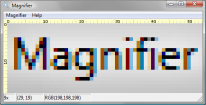For completeness let’s look at the static_assert keyword introduced as part of C++0x. Picking up where the previous two posts (I & II) left off (in 2008!).
int main( ) {
static_assert( false, "This must be true" );
return 0;
}
Visual Studio 2010 outputs:
1>main.cpp(2): error C2338: This must be true
Hooray for progress!
A static assertion that outputs a user controlled error message. Making it much easier to indicate what the actual problem is, and avoiding the need to dig through large amounts of invalid and/or undefined type related compiler output mess.
Better yet; BOOST_STATIC_ASSERT will take advantage of static_assert if your compiler supports it.
#include <boost/static_assert.hpp>
#pragma pack( push, 1 )
struct PktData {
char b1;
char b2;
};
#pragma pack( pop )
BOOST_STATIC_ASSERT( 1 == sizeof(PktData) );
Visual Studio 2010 outputs:
1>main.cpp(10): error C2338: 1 == sizeof(PktData)
Where the error message is populated by the failing expression. Which may be nicer than having to specify your own error message as required by static_assert.

